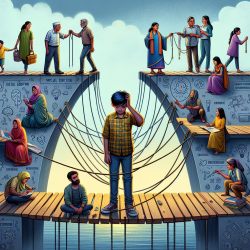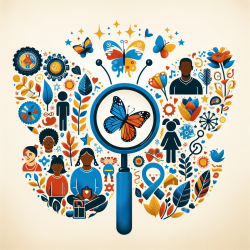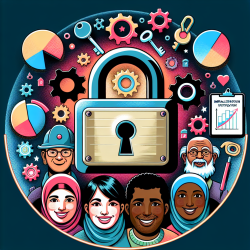Introduction
In the realm of education and mental health, the importance of social ties cannot be overstated. Recent research has highlighted the critical role that social connections play in the mental well-being of Asian and Pacific Islander (API) undocumented young adults. This blog explores the findings from a study titled The association between social ties and depression among Asian and Pacific Islander undocumented young adults, offering insights and practical applications for practitioners working with this population.
Understanding the Research
The study delves into the mental health challenges faced by API undocumented young adults, a group often overlooked in mental health research. It distinguishes between two types of social ties: bonding and bridging. Bonding ties are connections with individuals who share similar backgrounds, while bridging ties extend across diverse groups. The research found that both types of ties are associated with lower odds of depression, whereas isolation increases the risk of depression.
Key Findings and Implications
- Bonding Ties: These ties provide emotional support and solidarity. Practitioners can encourage the development of these connections by facilitating group activities and support networks within schools and communities.
- Bridging Ties: These connections offer access to diverse resources and perspectives, which can enhance mental health. Schools can play a pivotal role by fostering environments where students can engage with diverse groups and access varied resources.
- Isolation: The absence of social ties is a significant risk factor for depression. Practitioners should be vigilant in identifying isolated individuals and work to integrate them into supportive networks.
Practical Applications for Practitioners
Practitioners working with API undocumented young adults can apply these findings in several ways:
- Create Supportive Environments: Schools and community centers should provide safe spaces where young adults can build both bonding and bridging ties.
- Promote Inclusive Policies: Policies that support programs like Deferred Action for Childhood Arrivals (DACA) can enhance social integration and mental health.
- Facilitate Access to Resources: Encourage connections with counselors, healthcare providers, and other support services to build bridging ties.
- Encourage Group Activities: Group activities and workshops can help foster bonding ties and reduce feelings of isolation.
Encouraging Further Research
While this study provides valuable insights, further research is needed to explore the nuances of social ties and mental health among diverse immigrant populations. Practitioners are encouraged to engage in or support research initiatives that aim to deepen our understanding of these dynamics.
Conclusion
The mental health of API undocumented young adults can be significantly impacted by their social ties. By fostering both bonding and bridging connections, practitioners can play a crucial role in supporting the mental well-being of this vulnerable population. To read the original research paper, please follow this link: The association between social ties and depression among Asian and Pacific Islander undocumented young adults.










